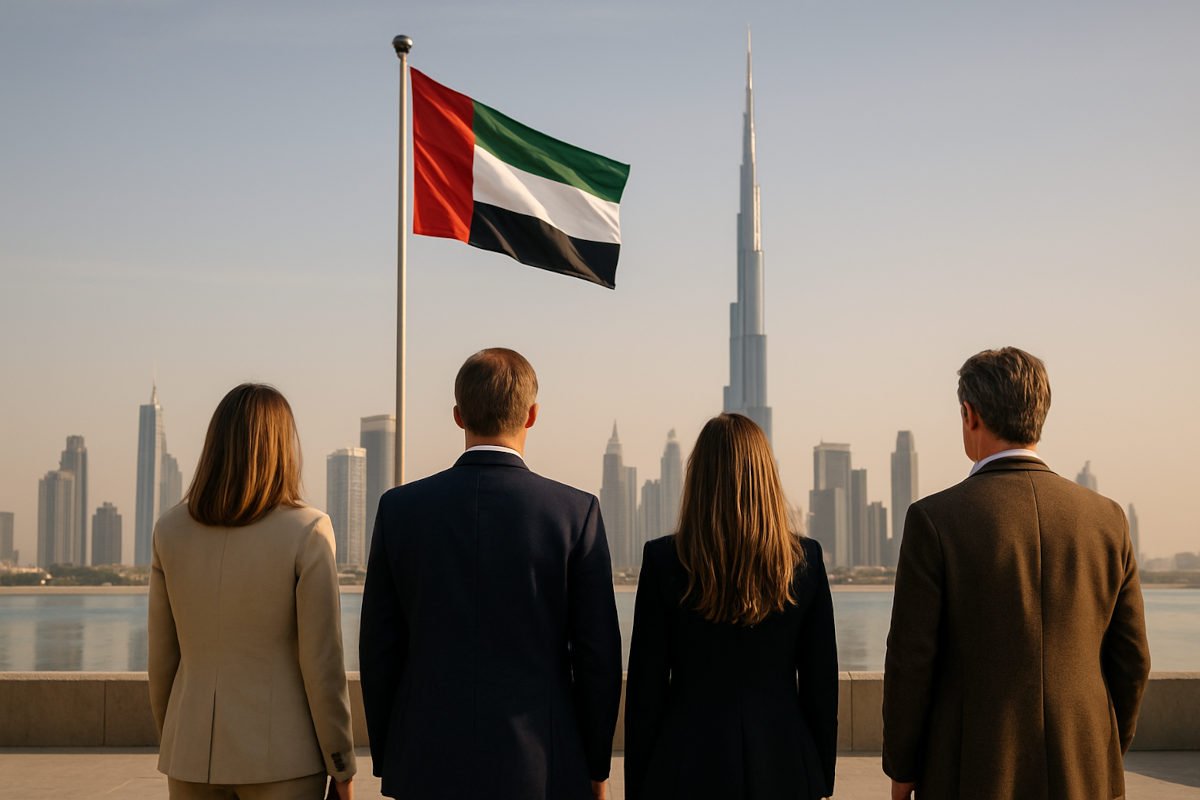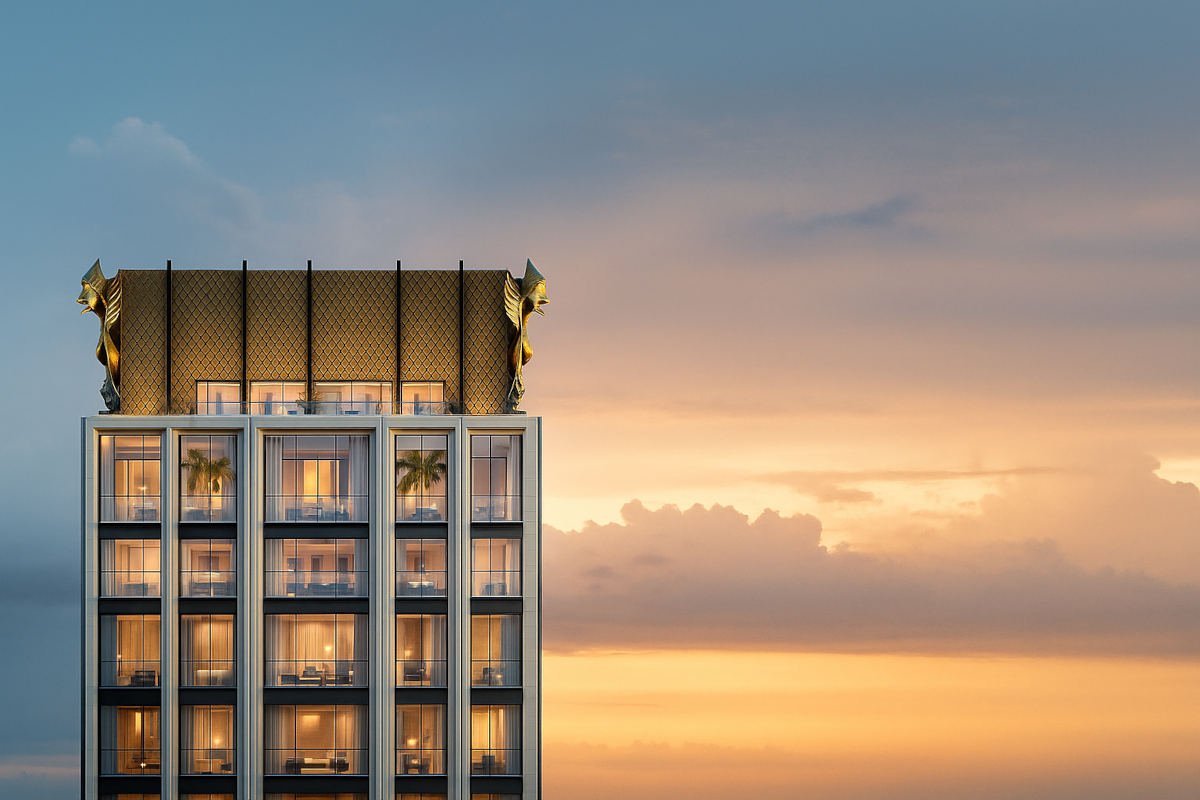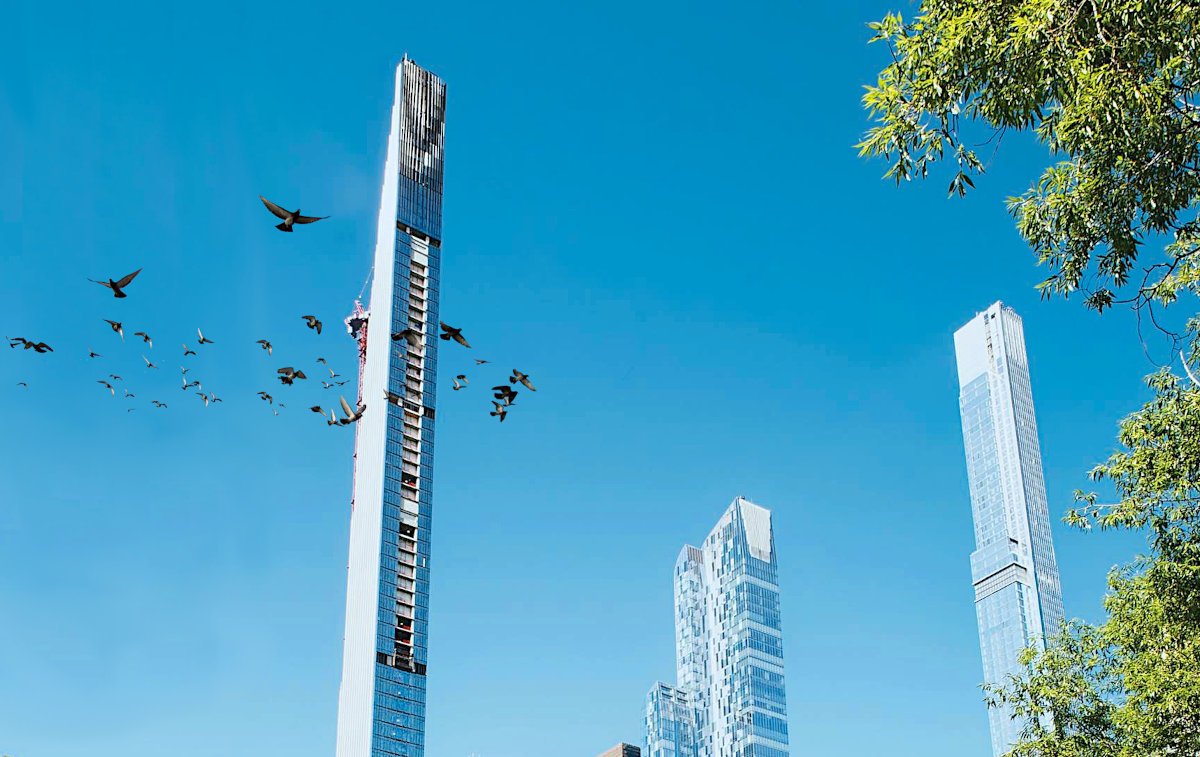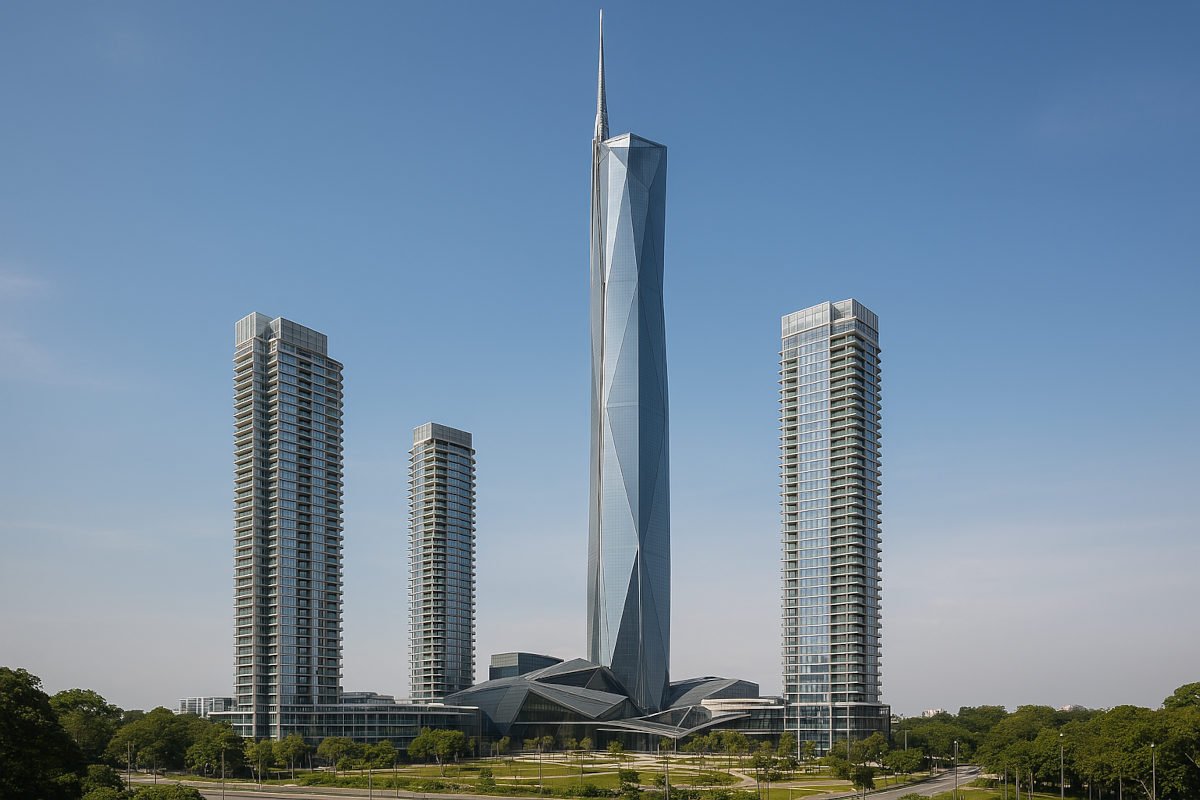This is part two in our series of guides how to buy property in a different country as a foreign national. Our previous guide was about how to acquire property in the Philippines.
Whether you are looking for a warmer climate to settle in, safety for you family, low taxation or just a foreign asset, the Emirate has a lot to offer.
Dubai has one of the most dynamic and exciting property markets to invest in. This vibrant, modern metropolis offer numerous opportunities for its residents. Purchasing a property in Dubai is very possible, even for foreigners, as long as you understand the local laws, market trends, and financial considerations. Whether you’re looking for a luxury villa, a beachfront apartment, or a commercial property, Dubai offers a wide variety of exciting real estate opportunities.
So, how can you buy property in Dubai as a foreigner?
Understanding the Legal Framework for Foreign Buyers
Before diving further into Dubai’s real estate market, it is important to know what kind of properties a foreigner can purchase in Dubai and how.
There are two property types available for foreigners who want more than just renting:
1. Freehold Properties
In 2002, the Dubai government made a reform allowing non-citizens to own freehold properties. These properties are designated by the DLD (Dubai Land Department), and are updated on a yearly basis.
Freehold refer to outright ownership of the property and land. Foreigners can purchase freehold properties in designated areas like Dubai Marina, Downtown Dubai, Palm Jumeirah, and Jumeirah Village Circle (JVC). Freehold ownership is ideal for long-term investments or those seeking permanent residency.
This is the property type we will focus on throughout this guide as it’s the most common next to rentals.
2. Leasehold Properties
With leasehold properties, you lease the property for a specific period, usually up to 99 years, after which ownership of the land reverts to the original owner (freeholder).
With this property type, you are usually not allowed to make any changes to the property without the owner’s consent. For example, you need freehold owner’s permission to paint the walls, remodel the kitchen or repave the driveway. However, some Leasehold Agreements might give you permission to do property changes.
This property type can be very lucrative if the right deal is made. You might settle on a fair, fixed Ground Rent as the contract is signed. If yearly increases to the ground rent isn’t specified in the Leasehold Agreement, you can sit on a potential gold mine due to inflation.
In Dubai, full rights are offered to foreign investors, which grants them full ownership rights of freehold properties. You can rent out, sell and transfer the property as you wish, just as a regular UAE citizen.
Choosing the Right Location For Your Dubai Property Investment
There are several neighborhoods in Dubai available for foreign buyers, each having an unique lifestyle and potential. The following areas are some that has been made available as Freehold for foreign nationals by the DLD throughout the years:
Downtown Dubai
The downtown area is where you can find attractions such as Burj Khalifa and the Dubai Mall, one of the World’s largest shopping malls. It’s a classy location with tons of luxury apartments offering magnificent views over the city, and much more is under development.
The location is perfect for investors as it’s located in the city centre, where tourists are always gathering for shopping and exploring. A perfect spot for an AirBnB!
Dubai Marina
This is a highly sought-after waterfront neighborhood with high-rise apartments as well as villas. Dubai Marina has everything available nearby for living a relaxed, cosmopolitan lifestyle complete with dining, retail, and other entertainment options.
If you have a yacht, or plan having one, this is the perfect neighborhood. You can just dock it right outside your apartment.
Palm Jumeirah
Palm Jumeirah—visible from space—is a gigantic, artificial island as a result of a land reclamation project. Here you can find exclusive hotels, villas and posh apartments.
What properties here are not lacking is beachfront views. The island is, not surprisingly, shaped as a palm with fronds. On each frond, every villa lot has their own beachfront.
Emirates Hills
Emirates Hills, named after Beverly Hills, is another posh neighborhood popular among foreign investors and residents. This gated community is located close to the Montgomerie Golf Club and a neighboring driving range. Making it a perfect location for eager golfers.
Other than top-notch golf facilities, Emirates Hills also offer high-end restaurants, schools and various sport facilities.
Other popular and available areas for non-citizens:
- Jumeirah Village Circle
- Business Bay
- Barsha Heights
- Blue Water Island

Financing Your Dubai Property Purchase
Generally, loans for foreign buyers in Dubai are at maximum 75 percent of the property’s value, if they reside within Dubai. If they aren’t staying in Dubai, they can only access a total loan amount of 65 percent of the property’s value. Sometimes, this percentage may be adjusted depending on the lender, your financial status, and even the nature of the property you are purchasing. A variety of local and foreign banks that are operating within the Dubai market, in particular Emirates NBD, HSBC, and Standard Chartered, may also offer mortgage alternatives tied to the purchase price, mainly targeted towards foreign investors. Keep in mind the following before you apply for a mortgage:
Eligibility
You must have good credit history to be eligible and enough income to cover the mortgage payment.
Down Payment
Non-residents have to make a higher down payment, usually up to 25-35% of the value of the property.
Interest Rates
Mortgage rates fluctuate between 3% and 5% depending upon the terms and conditions and the market scenario prevalent in Dubai.
Documentation
The banks will ask for the proof of your identity, residence status, income, credit history, and sometimes tax returns in your home country.
Obviously, it pays to get pre-approved for a mortgage ahead of time to understand what you can afford and negotiate with confidence.

Engaging a Real Estate Professional in Dubai
Purchasing property in Dubai as a foreigner can be a complex process leading to headaches, whether for personal use or investment. Engaging a “Buyer’s real estate agent” ensures that you can navigate through this with expert guidance while safeguarding your interests.
A buyer’s agent represents the buyer exclusively, unlike a listing agent who works for the seller. Their primary role is to act as an advocate, negotiating favorable terms, uncovering hidden costs, and providing tailored advice. This ensures that you secure the best deal while avoiding costly pitfalls.
Dubai’s real estate market comes with its own set of complexities, including unique legal frameworks, off-plan regulations, and varying property standards. A professional buyer’s agent is well-versed in these aspects, helping you comply with Dubai Land Department requirements, verifying property titles, and ensuring a smooth transaction. Their expertise can be the difference between a seamless process and a stressful experience.
One of the key advantages of working with a buyer’s agent is access to off-market deals and exclusive listings. Many premium properties in Dubai are not publicly advertised, and an experienced agent’s network can open doors to opportunities you might not find on your own. This is especially important in Dubai’s competitive real estate market, where high-demand properties often sell quickly.
In addition to finding the right property, a buyer’s agent saves you time and effort by handling the logistical challenges. From scheduling property viewings to liaising with lawyers, banks, and surveyors, they ensure the process is organized and efficient. Their local knowledge also helps narrow down options based on your budget, lifestyle, and investment goals, making the search process more targeted and effective.
Importantly, the buyer’s agent provides unbiased advice, focusing solely on your best interests. They will point out a property’s potential downsides as well as its advantages, helping you make an informed decision without pressure.
While the benefits of a buyer’s agent are substantial, it’s essential to understand the cost. Most buyer’s agents in Dubai charge between 2% and 5% of the property’s purchase price, depending on the complexity of the transaction and the services provided. Some agents may also charge a flat fee, particularly for high-value properties.
This fee is a worthwhile investment when considering the financial risks and challenges of navigating Dubai’s real estate market without professional representation. A buyer’s agent ensures you get value for your money and make sound, informed decisions.

Taxes And Fees For Foreign Property Buyers in Dubai
Dubai can boast of low taxation and being a tax haven. Despite this, there are however some taxes and fees that have to be paid when acquiring property.
When foreign property buyers purchase property in Dubai, they typically face the following taxes and fees:
- Dubai Land Department (DLD) Transfer Fee:
- A 4% fee of the property’s purchase price is paid to the Dubai Land Department (DLD) as a transfer fee.
- An additional admin fee of AED 580 for properties valued under AED 500,000 or AED 4,000 for properties over AED 500,000.
- Real Estate Agent Commission:
- Typically, 2% of the property’s purchase price is charged by the agent handling the transaction.
- Developer Fees:
- If buying directly from a developer, there may be fees for services or documentation. These vary based on the developer and project.
- Oqood Registration Fee (Off-Plan Properties):
- For off-plan properties, buyers must register the sale with the DLD through the Oqood system, which costs 4% of the purchase price.
- Mortgage Registration Fee (If Financing is Used):
- A 0.25% fee of the total loan amount is charged to register the mortgage with the DLD, along with an AED 290 admin fee.
- Property Maintenance Fees:
- Annual service or maintenance charges are common and vary based on the property and developer.
- VAT:
- Residential property sales are generally exempt from VAT, but commercial property sales attract a 5% VAT.
It’s essential to consult a real estate expert or legal advisor to ensure a clear understanding of these costs.
Conclusion
Buying property in Dubai as a foreigner is an exciting opportunity, whether for personal residence or investment. With its dynamic real estate market, modern infrastructure, and tax-friendly environment, Dubai offers significant appeal to international buyers. However, the process requires careful planning, understanding of legal frameworks, and financial preparedness. From choosing between freehold and leasehold properties to selecting the right neighborhood, securing financing, and navigating taxes and fees, each step demands attention to detail.
Engaging a professional real estate agent and consulting with legal and financial advisors can make the journey smoother and more efficient. With the right approach, investing in Dubai’s property market can be a rewarding experience, providing both financial growth and a gateway to a luxurious lifestyle in one of the world’s most vibrant cities.






